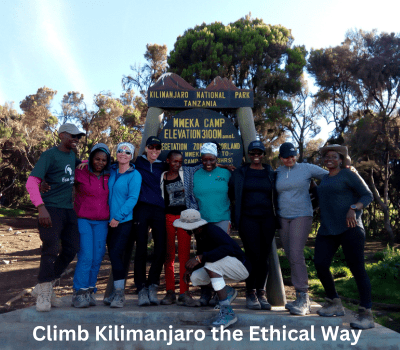Are Guides Included in Kilimanjaro Tour Packages?
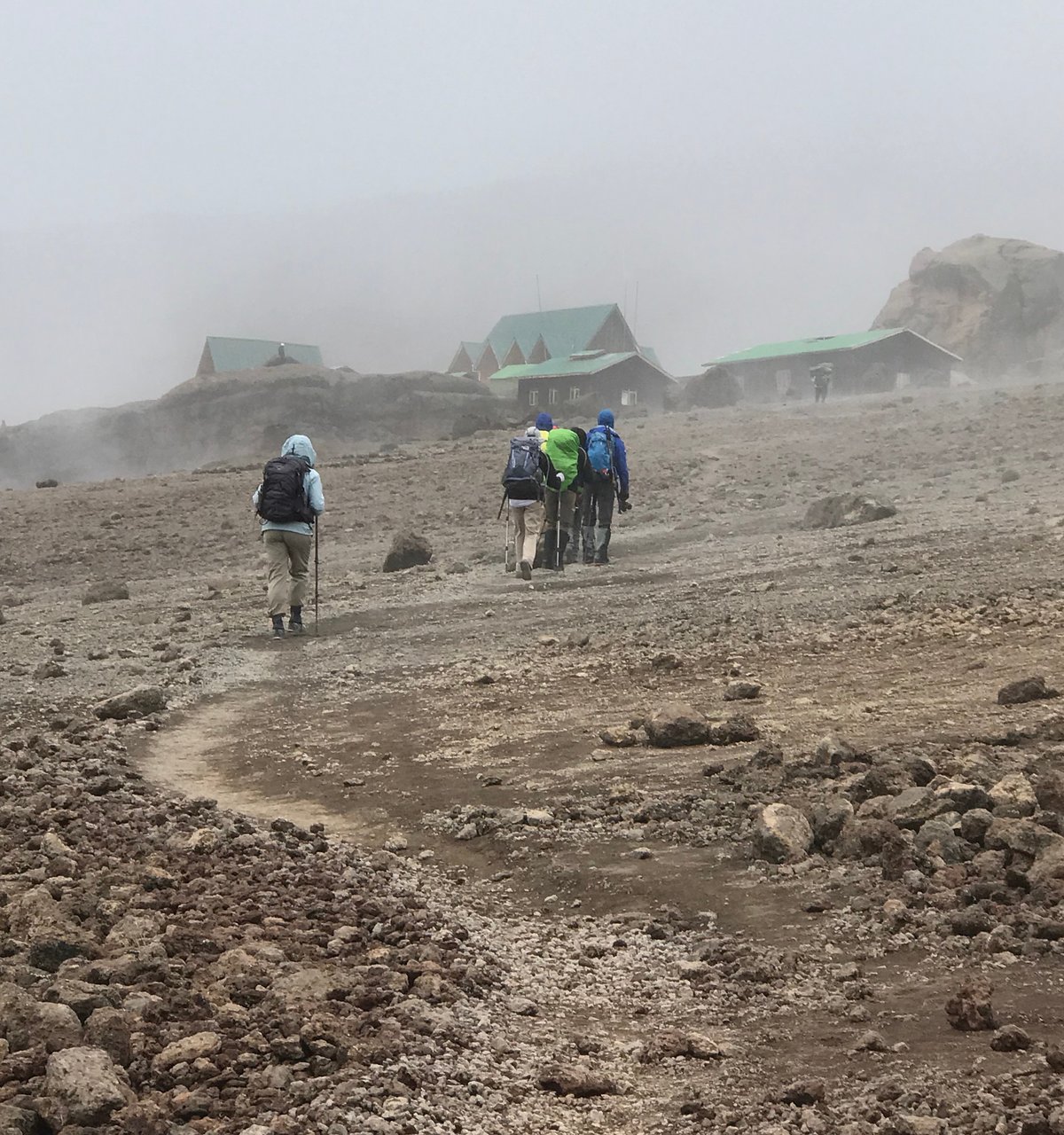
Introduction: Why Guides Matter on Kilimanjaro
Climbing Mount Kilimanjaro is more than just a physical challenge—it’s a life-changing adventure that demands careful planning, support, and safety measures. One of the most essential elements of a successful climb is your guide. In fact, having a knowledgeable, certified guide isn’t just helpful—it’s mandatory under Tanzanian law. But for many climbers, especially first-timers, there’s often confusion about what’s actually included in a Kilimanjaro tour package. Are guides part of the deal, or is this an added expense?
Let’s clear that up. In this guide, we’ll walk you through everything you need to know about Kilimanjaro guides—whether they’re included, what role they play, and why choosing the right company, like Eco-Africa Climbing, makes all the difference. You’ll also learn how professional guides are trained, what certifications they hold, and why their presence could mean the difference between a safe summit and a failed expedition.
Think of your Kilimanjaro guide as your mountain compass—an experienced leader, health monitor, motivator, and safety net, all rolled into one. Whether you’re trekking the Northern Circuit Route or taking on the classic Machame Route, your guide is your key to success.
What’s Typically Included in a Kilimanjaro Tour Package?
A Kilimanjaro tour package generally includes all the essentials you need to get from the base to the summit and back again—safely and comfortably. But the contents of these packages can vary significantly between companies, especially when comparing local operators to international agents. Here’s what you should typically expect:
| Included | Details |
|---|---|
| Guides | Certified, local guides with first-aid and altitude training |
| Porters & Cooks | Support team carrying gear, setting up tents, preparing meals |
| Accommodation | Tents on the mountain; hotels before/after the climb |
| Meals | Three freshly prepared meals a day on the mountain |
| Park Fees | Mandatory Kilimanjaro National Park entry & camping fees |
| Transfers | Transport to/from trailhead and airport |
With Eco-Africa Climbing, you also get bonuses like pre-climb briefings, gear checks, and even nutritious, gourmet mountain meals. But the guide? That’s non-negotiable. A professional guide is always included, and for good reason.
Are Guides Always Included – Or Optional?
This is one of the most commonly asked questions among trekkers: “Can I climb Kilimanjaro without a guide?” The short answer is no. Since 1991, the Tanzanian government has enforced a regulation that requires all trekkers to be accompanied by a licensed guide—no exceptions. So if you’re booking a legitimate Kilimanjaro tour, a guide should always be included.
However, not all tour companies are created equal. Some budget operators might advertise “bare-bones” packages where key items are excluded or poorly delivered. That’s why it’s crucial to go with a reputable company like Eco-Africa Climbing, where transparency, ethical standards, and client safety are prioritized.
Not only do we include certified guides in every package—we ensure they’re among the most experienced in Tanzania. Our guides are trained in Wilderness First Response (WFR), high-altitude care, and rescue operations. With over 1,000 summits under their belts, they bring unmatched local knowledge and confidence to your journey.
Understanding the Legal Requirement: Guides Are Mandatory
Here’s the legal truth: You cannot legally climb Kilimanjaro without a registered, licensed guide. According to Tanzania National Parks Authority (TANAPA) regulations, all visitors must book through a licensed tour operator that provides certified guides and support staff. This rule isn’t about making money—it’s about protecting lives.
Kilimanjaro’s extreme altitude poses real risks, including acute mountain sickness (AMS), dehydration, and even life-threatening conditions like pulmonary or cerebral edema. A certified guide monitors your vital signs daily using pulse oximeters and oxygen saturation checks. They know when to push forward—and when to turn back.
At Eco-Africa Climbing, we take your safety seriously. Our team follows strict protocols laid out by KPAP (Kilimanjaro Porters Assistance Project) and Leave No Trace Tanzania. We also provide emergency oxygen and train our staff in safety procedures for high-altitude trekking.
The Role of Your Kilimanjaro Guide: More Than Just a Leader
Guides on Kilimanjaro aren’t just there to show you the way. They are your support system, health supervisor, cultural interpreter, and morale booster. At Eco-Africa Climbing, our guides are locals who know every turn, weather pattern, and altitude shift on the mountain. Their deep familiarity with the terrain can be life-saving.
Here’s what your guide does daily:
- Performs health checks (oxygen levels, pulse, symptoms)
- Sets the trekking pace (“pole pole” – slowly, steadily)
- Coordinates porters and logistics with military precision
- Motivates you with encouragement and cultural stories
- Handles emergencies and reroutes if weather changes
Our 7-star service includes experienced guides who treat every client like family. Their leadership transforms your trek into an extraordinary memory. The feedback we often hear is, “I couldn’t have done it without my guide.” And honestly? That’s 100% true.
Certifications and Training: What Makes a Guide Qualified?
A qualified Kilimanjaro guide is more than just someone who’s climbed the mountain before. At Eco-Africa Climbing, all our guides go through rigorous professional training and certification processes. This ensures they not only know the routes—but can keep you safe and healthy every step of the way.
Our guides are certified in:
- Wilderness First Responder (WFR) – medical response training for remote environments
- Leave No Trace Tanzania – environmental ethics and sustainability
- Altitude sickness recognition – understanding and treating AMS, HAPE, and HACE
- Emergency evacuation protocols – including helicopter rescue logistics
- Team leadership and guest care – client-first hospitality at high altitude
We also provide regular re-training and workshops in partnership with KPAP to ensure porters and guide stay updated with the latest safety standards and tourism policies. You can learn more about our safety procedures here.
How Many Guides Are Assigned Per Group?
The number of guides provided depends on the size of the group and the route. On average, for every 2–3 climbers, we assign one certified lead guide. For larger groups, there’s usually a head guide supported by one or more assistant guides, ensuring close monitoring and client care throughout the trek.
Here’s a general breakdown:
| Group Size | Guide Assignment |
|---|---|
| 1–2 climbers | 1 Lead Guide |
| 3–6 climbers | 1 Lead + 1-3 Assistant Guides |
| 7–10 climbers | 1 Lead + 3-4 Assistant Guides |
| 10+ climbers | Custom guide team based on route & health needs |
Each guide on our team is also familiar with the specific demands of various routes like the Rongai, Machame, and Lemosho routes. This ensures a tailored experience based on your route’s terrain, altitude shifts, and campsite locations.
Can I Request a Specific Guide?
Yes, absolutely. At Eco-Africa Climbing, we understand that trust and personal connection are key when trekking for 7+ days on a mountain. Many of our returning clients specifically request the same guide who led their last climb—because the experience left such a lasting impact.
You can review guide bios and request a preferred one during booking. Some clients also request:
- Women-only groups with female guides
- Local language-speaking guides (e.g., Swahili, English)
- Veteran guides with 100+ successful summits
Want to meet the team before you climb? Visit our Moshi office, meet your guide face-to-face, and get fully briefed before your adventure begins. Learn more about our team here.
What About Porters and Cooks – Are They Included Too?
Yes, your Kilimanjaro package includes a full support team beyond just the guide. This includes porters, cooks, and camp staff—each playing a vital role in your comfort and success. A typical climbing crew includes:
- Porters: Carry gear, tents, food, water, and your duffel bag
- Cooks: Prepare three hot meals a day tailored to your diet
- Waitstaff: Serve meals and hot drinks at camp
- Camp setup crew: Pitch tents, sanitize toilets, and manage supplies
At Eco-Africa Climbing, we are proud members of KPAP, ensuring fair pay, proper gear, safe working conditions, and respect for our porters. Our company has created over 500 jobs for local Tanzanians—helping uplift lives while delivering world-class adventures.
Beware of Budget Operators: What They Don’t Tell You
Many budget tour operators will cut corners to advertise low prices—but at what cost? Often, these low-budget packages exclude key services or underpay their crew. This can lead to poor guiding, food shortages, broken gear, and even dangerous medical situations at high altitudes.
Red flags to watch for:
- No guide bio or certifications shared before booking
- Lack of proper gear like pulse oximeters or emergency oxygen
- Vague itinerary and no transparency about park fees
- No affiliation with KPAP or Leave No Trace
That’s why choosing an ethical operator like Eco-Africa Climbing matters. We include every essential service—plus extras like mountain meals, sustainable waste management, and carbon offsetting. Learn about our sustainable approach to travel.
The Guide-to-Client Ratio: Why It Matters for Safety
When climbing Kilimanjaro, the guide-to-client ratio is not just a number—it’s a safety standard. The Tanzanian park authorities recommend having one guide for every 2–3 climbers, especially at high altitudes where the risk of acute mountain sickness (AMS) increases. A tighter ratio allows for closer monitoring of each client’s health and ensures personalized care.
At Eco-Africa Climbing, we maintain or exceed this standard on every route, from the Shira Route to the Northern Circuit. Why? Because your safety is our top priority.
Our guides perform daily health checks, manage pace, and stay in constant communication with support staff. Should any emergency arise, our team is trained to handle evacuation procedures effectively. That level of attention is only possible with an optimal guide-to-client ratio.
Do All Companies Provide the Same Quality of Guides?
Not at all. The quality of guides varies drastically between operators. While some companies, like Eco-Africa Climbing, invest in training, certification, and welfare, others hire minimally qualified staff to cut costs.
At Eco-Africa Climbing:
- All guides are WFR-certified and licensed
- Undergo continuous training and workshops
- Have a track record of high summit success rates
- Are fluent in multiple languages (English, Swahili)
- Provide rich cultural context and historical knowledge of the mountain
If you’re comparing tour operators, ask detailed questions about the guide team. Who are they? What’s their summit success rate? Are they KPAP verified? If these questions make a company hesitate, that’s a red flag.
Language and Cultural Support from Guides
Guides do more than keep you physically safe—they also act as cultural bridges. From teaching you Swahili phrases like “pole pole” (go slowly) to explaining the legends of Uhuru Peak, your guide enriches your journey with meaningful context.
At Eco-Africa Climbing, many of our guides are multilingual. They can translate local customs, communicate with park rangers, and help you connect more deeply with Tanzanian culture. For climbers from abroad, this personal connection often becomes one of the most memorable parts of the experience.
Want to dive deeper into Tanzania’s heritage? Pair your climb with a tribal tour or a cultural visit to a local village after your summit.
Additional Roles: Guides as Medics, Motivators, and Managers
A true Kilimanjaro guide wears many hats. They’re part medic, part mountain coach, and part operations manager. During your climb, they will:
- Conduct twice-daily oxygen level checks
- Evaluate your symptoms for altitude sickness
- Make pace adjustments based on group fitness
- Organize camp logistics with porters and cooks
- Lead safety drills and emergency simulations
- Keep morale high with songs, stories, and encouragement
This multi-functional role is especially vital at higher altitudes where fatigue and oxygen depletion are real threats. Our guides at Eco-Africa Climbing have led hundreds of clients through extreme weather, sudden altitude drops, and even emergency evacuations. Their calm, confident presence is your greatest asset on the mountain.
Do Guides Help Increase Summit Success Rates?
Absolutely. There’s a direct link between guide quality and your chances of reaching Uhuru Peak. According to KPAP data, climbers with trained, attentive guides have a significantly higher success rate—especially on longer routes like the 8-day Northern Circuit.
Why? A good guide sets the right pace, ensures proper hydration, monitors your health, and keeps you motivated during tough summit pushes. They make decisions that keep you safe—and sometimes, those decisions save lives.
At Eco-Africa Climbing, our summit success rate is among the highest in the industry, thanks to our expert guides and ethical practices. We don’t rush climbers, and we always prioritize your safety over statistics.
Conclusion: Your Guide Is the Heart of the Journey
When you climb Kilimanjaro, your guide is more than a mountain escort—they’re the soul of your experience. From safety and support to culture and motivation, guides shape every step of your journey. That’s why all Eco-Africa Climbing packages include certified, ethical, and experienced guides—never as an add-on, always as a standard.
If you’re seeking an unforgettable, safe, and sustainable climb, don’t settle for anything less than a top-tier team. Choose a company that believes in professionalism, fair wages, and empowering local experts. Choose Eco-Africa Climbing—your 100% Tanzanian-owned partner for the trek of a lifetime.
Frequently Asked Questions (FAQs)
Are guides included in every Kilimanjaro tour package?
Yes, all legitimate Kilimanjaro packages—especially those by Eco-Africa Climbing—include guides as standard. Tanzanian law requires all trekkers to be accompanied by certified guides.
What certifications should Kilimanjaro guides have?
Look for guides who are Wilderness First Responder (WFR) certified and trained in altitude sickness, emergency response, and Leave No Trace ethics.
How many guides are typically assigned per group?
For every 2–3 climbers, expect at least one guide. Larger groups will include assistant guides to ensure close monitoring of all climbers.
Can I request a specific guide with Eco-Africa Climbing?
Absolutely. You can request specific guides, including women-only guide teams or multilingual guides. Just let us know during the booking process.
What’s the difference between Eco-Africa guides and other companies?
Eco-Africa guides are certified, local, highly trained, and deeply committed to guest experience. Many clients say their guide was the highlight of their trip—proof of our 7-star mountain service.
Book Your Ethical Kilimanjaro Adventure Today
Ready to climb with the best guides on Kilimanjaro? Join the hundreds of climbers who’ve trusted Eco-Africa Climbing for unforgettable, ethical, and expertly guided expeditions.
From mountain routes to safari combos, we offer full-service packages with everything included—guides, porters, gear, meals, transfers, and smiles.
Visit our office in Moshi or book your climb online today:
eco-africaclimbing.com/online-booking/
Share:
Related Posts
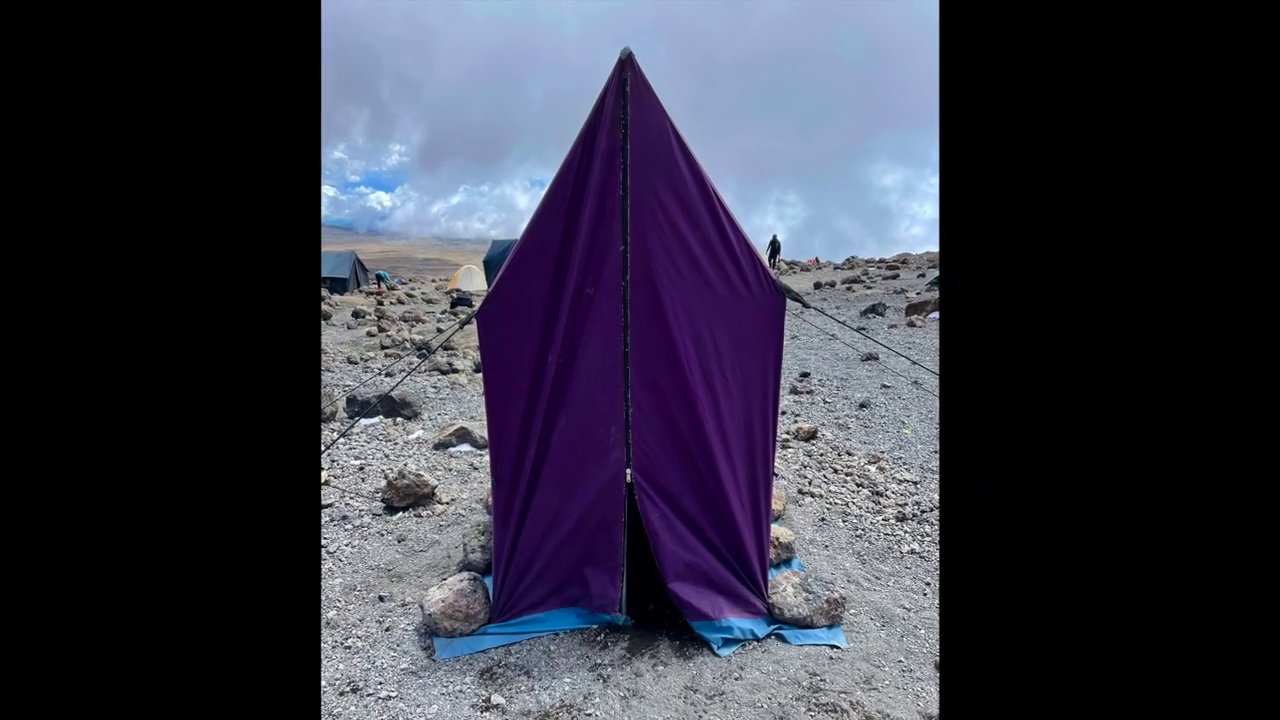
bathroom on mountain kilimanjaro
Bathroom on Mountain Kilimanjaro: What to Expect and How to Prepare Introduction One of the most common — and least discussed — questions from people
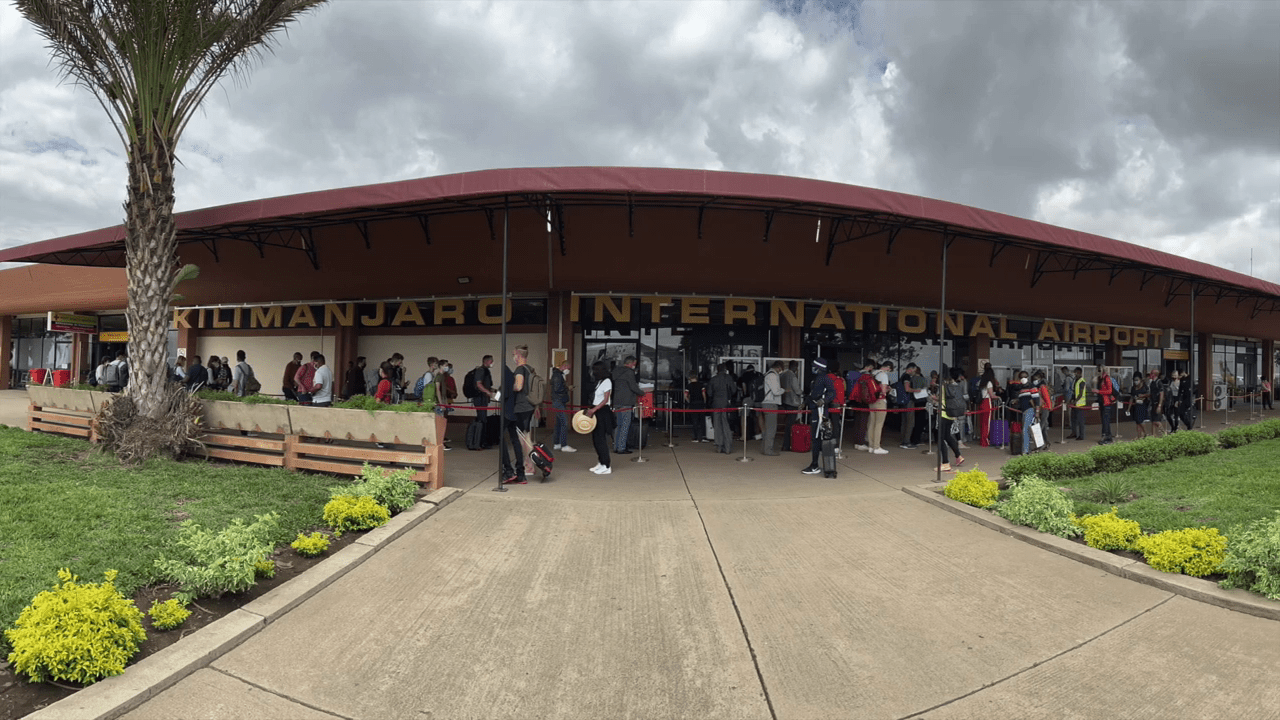
Are Guides Readily Available in Tanzania Without Prior Booking?
Are Guides Readily Available in Tanzania Without Prior Booking? Introduction: Should You Risk Climbing Without Pre-Booking? Climbing Mount Kilimanjaro is a dream for many adventurers.
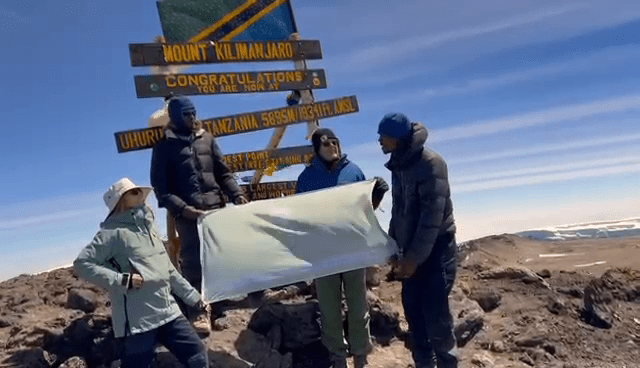
How Can I Find a Reliable Local Guide for My Kilimanjaro Expedition?
How Can I Find a Reliable Local Guide for My Kilimanjaro Expedition? Introduction: Why the Right Guide Is Key to Kilimanjaro Success Climbing Mount Kilimanjaro
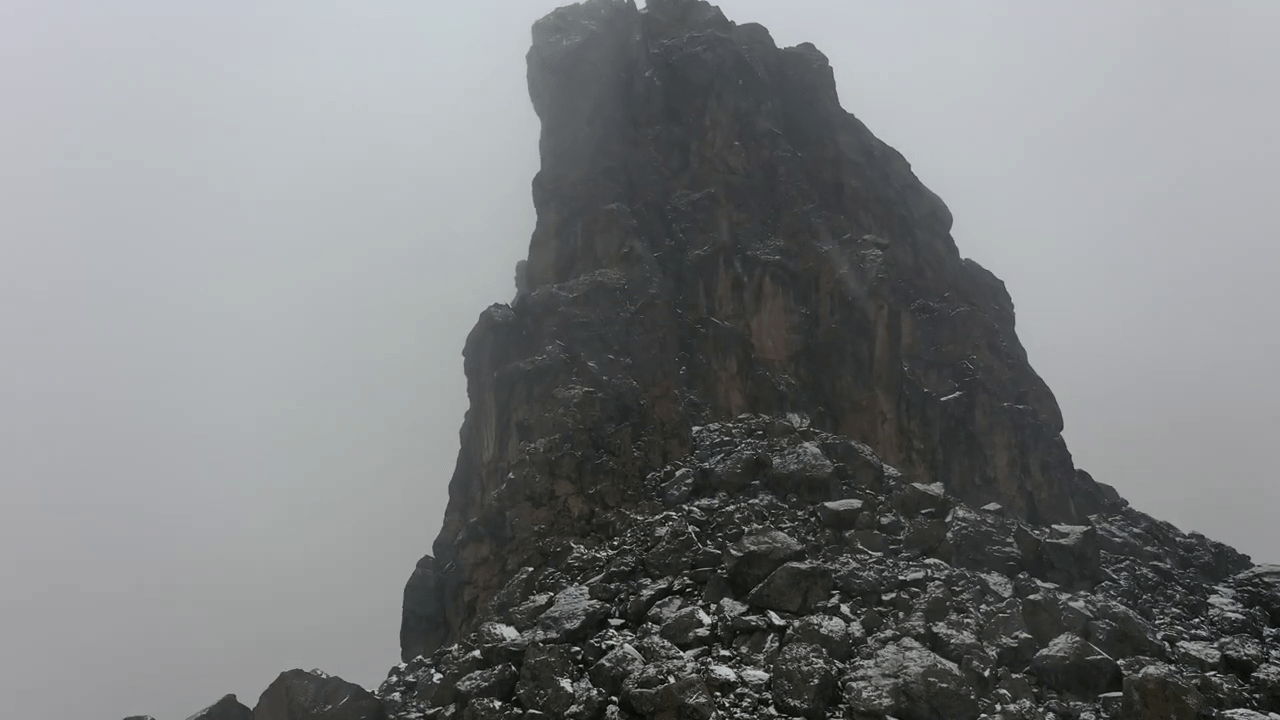
Is Climbing Kilimanjaro Dangerous for Individuals Without Mountaineering Experience?
Is Climbing Kilimanjaro Dangerous for Individuals Without Mountaineering Experience? Introduction: The Myth of Danger and Experience Many aspiring adventurers wonder if climbing Mount Kilimanjaro is
